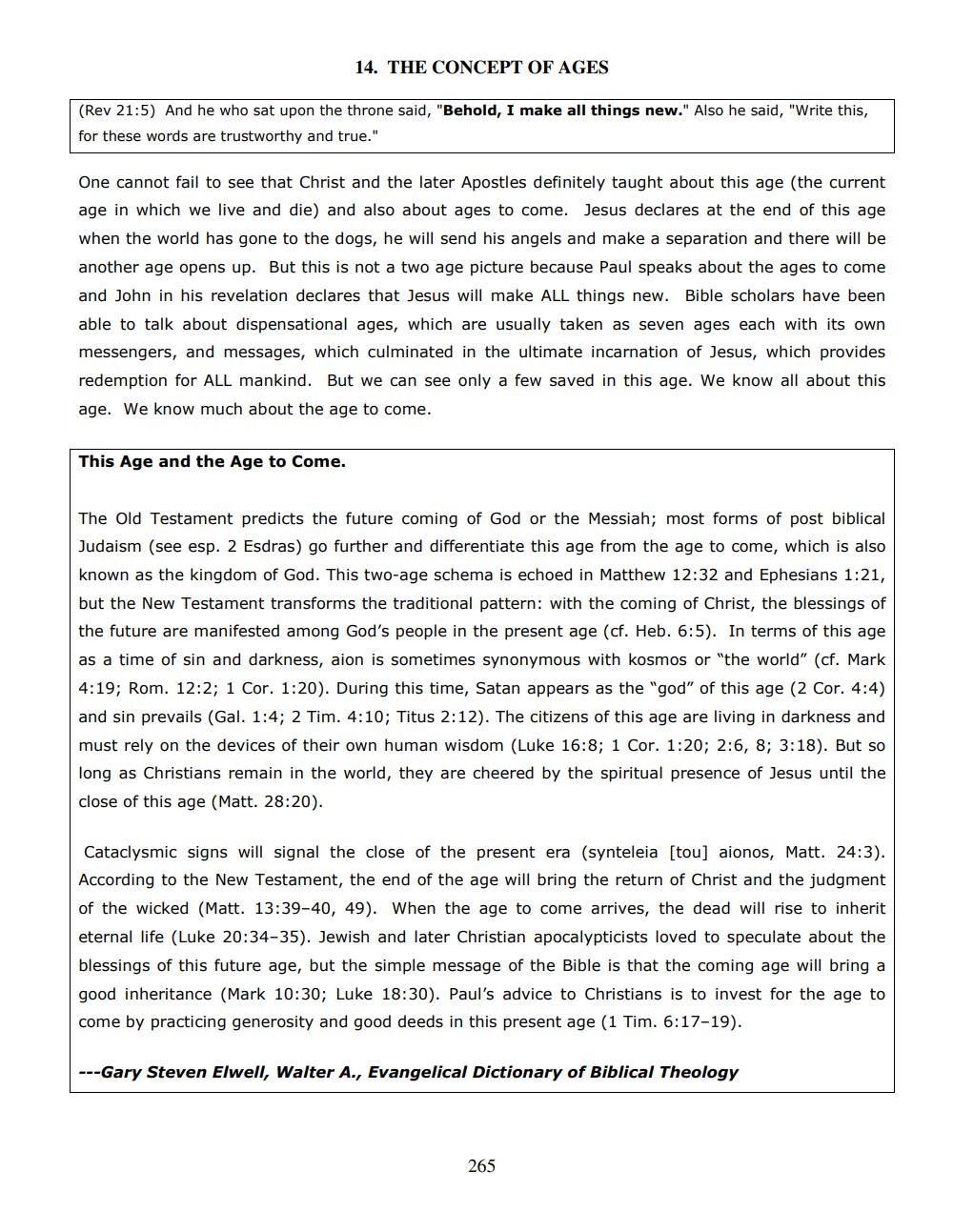________________
14. THE CONCEPT OF AGES
(Rev 21:5) And he who sat upon the throne said, "Behold, I make all things new." Also he said, "Write this, for these words are trustworthy and true."
One cannot fail to see that Christ and the later Apostles definitely taught about this age (the current age in which we live and die) and also about ages to come. Jesus declares at the end of this age when the world has gone to the dogs, he will send his angels and make a separation and there will be another age opens up. But this is not a two age picture because Paul speaks about the ages to come and John in his revelation declares that Jesus will make ALL things new. Bible scholars have been able to talk about dispensational ages, which are usually taken as seven ages each with its own messengers, and messages, which culminated in the ultimate incarnation of Jesus, which provides redemption for ALL mankind. But we can see only a few saved in this age. We know all about this age. We know much about the age to come.
This Age and the Age to Come.
The Old Testament predicts the future coming of God or the Messiah; most forms of post biblical Judaism (see esp. 2 Esdras) go further and differentiate this age from the age to come, which is also known as the kingdom of God. This two-age schema is echoed in Matthew 12:32 and Ephesians 1:21, but the New Testament transforms the traditional pattern: with the coming of Christ, the blessings of the future are manifested among God's people in the present age (cf. Heb. 6:5). In terms of this age as a time of sin and darkness, aion is sometimes synonymous with kosmos or "the world" (cf. Mark 4:19; Rom. 12:2; 1 Cor. 1:20). During this time, Satan appears as the "god" of this age (2 Cor. 4:4) and sin prevails (Gal. 1:4; 2 Tim. 4:10; Titus 2:12). The citizens of this age are living in darkness and must rely on the devices of their own human wisdom (Luke 16:8; 1 Cor. 1:20; 2:6, 8; 3:18). But so long as Christians remain in the world, they are cheered by the spiritual presence of Jesus until the close of this age (Matt. 28:20).
Cataclysmic signs will signal the close of the present era (synteleia [tou) aionos, Matt. 24:3). According to the New Testament, the end of the age will bring the return of Christ and the judgment of the wicked (Matt. 13:39-40, 49). When the age to come arrives, the dead will rise to inherit eternal life (Luke 20:34-35). Jewish and later Christian apocalypticists loved to speculate about the blessings of this future age, but the simple message of the Bible is that the coming age will bring a good inheritance (Mark 10:30; Luke 18:30). Paul's advice to Christians is to invest for the age to come by practicing generosity and good deeds in this present age (1 Tim. 6:17-19).
---Gary Steven Elwell, Walter A., Evangelical Dictionary of Biblical Theology
265




